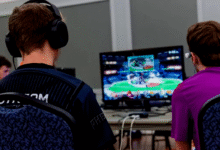10 Effective Time Management Strategies for Students
Time management for students: Discover 10 effective strategies to boost productivity, reduce stress, and achieve academic success effortlessly.

Time management is one of the most essential skills students must develop to succeed academically and maintain a healthy work-life balance. With the increasing demands of coursework, extracurricular activities, and personal commitments, many students struggle to juggle their responsibilities effectively. Poor time management can lead to missed deadlines, increased stress, and a decline in overall performance. However, by mastering effective time management strategies, students can prioritize tasks, stay organized, and make the most of their time. This article explores ten practical and proven strategies to help students manage their time efficiently and achieve their goals.
In today’s fast-paced world, students face numerous distractions, from social media to part-time jobs, making it challenging to stay focused on their studies. Effective time management not only helps students stay on top of their academic responsibilities but also allows them to enjoy their personal lives without feeling overwhelmed. By learning to plan, prioritize, and execute tasks effectively, students can reduce stress, improve productivity, and create a balanced lifestyle. Whether you’re a high school student preparing for exams or a college student managing multiple projects, these time management strategies will empower you to take control of your time and achieve success.
Set Clear Goals and Prioritize Tasks
One of the most effective time management strategies for students is setting clear, achievable goals. Goals provide direction and help students focus on what truly matters. Start by identifying long-term objectives, such as graduating with honors or securing an internship, and break them down into smaller, actionable steps. Prioritizing tasks is equally important. Use tools like the Eisenhower Matrix to categorize tasks based on their urgency and importance. Focus on completing high-priority tasks first, and avoid spending too much time on activities that do not contribute to your goals.
Create a Structured Schedule
A well-structured schedule is essential for effective time management. Allocate specific time slots for studying, attending classes, completing assignments, and engaging in extracurricular activities. Use a planner, calendar, or digital app to organize your daily, weekly, and monthly tasks. Be realistic about how much time each task will take, and include buffer time for unexpected delays. Stick to your schedule as much as possible, but remain flexible to accommodate changes when necessary.
Avoid Procrastination
Procrastination is a common challenge for students and can significantly hinder productivity. To overcome procrastination, break tasks into smaller, manageable chunks and set deadlines for each part. Use techniques like the Pomodoro Technique, which involves working for 25 minutes followed by a 5-minute break, to maintain focus and motivation. Additionally, identify and eliminate distractions, such as social media or unnecessary screen time, to stay on track.
Learn to Say No
While it is important to participate in extracurricular activities and social events, overcommitting can lead to burnout and poor time management. Learn to say no to activities that do not align with your priorities or goals. Politely decline invitations or requests that may interfere with your academic responsibilities. By setting boundaries, you can focus on what truly matters and avoid spreading yourself too thin.
Use Technology Wisely
Technology can be both a blessing and a curse when it comes to time management. While it offers tools like calendars, task managers, and productivity apps, it can also be a source of distraction. Use technology to your advantage by leveraging apps that help you stay organized and focused. For example, use note-taking apps to keep track of assignments, or use website blockers to limit access to distracting sites during study sessions.
Develop Effective Study Habits
Effective study habits are crucial for maximizing productivity and retaining information. Create a dedicated study space that is free from distractions and conducive to learning. Use active learning techniques, such as summarizing information in your own words or teaching concepts to someone else, to enhance understanding. Additionally, review your notes regularly and avoid cramming before exams to reduce stress and improve long-term retention.
Take Care of Your Health
Physical and mental health play a significant role in time management. Poor health can lead to fatigue, lack of focus, and decreased productivity. Prioritize self-care by getting enough sleep, eating a balanced diet, and exercising regularly. Take short breaks during study sessions to recharge and avoid burnout. Additionally, practice mindfulness or meditation to reduce stress and improve concentration.
Seek Help When Needed
Do not hesitate to seek help when you feel overwhelmed or stuck. Reach out to teachers, classmates, or tutors for assistance with challenging subjects. Join study groups to collaborate with peers and share knowledge. If you are struggling with time management, consider attending workshops or consulting a counselor for guidance. Remember, asking for help is a sign of strength, not weakness.
Reflect and Adjust
Regularly assess your time management strategies to identify what works and what does not. Reflect on your progress and make adjustments as needed. For example, if you find that you are consistently running out of time for certain tasks, consider reallocating your schedule or setting stricter deadlines. Continuous improvement is key to mastering time management.
Stay Motivated and Reward Yourself
Staying motivated is essential for maintaining good time management habits. Set milestones and reward yourself when you achieve them. For example, treat yourself to a favorite snack or take a break to watch an episode of your favorite show after completing a challenging assignment. Celebrating small victories can boost your morale and keep you motivated to tackle bigger tasks.
Read More: Time Management Tips for Students to Ace Their Exams
Conclusion
Effective time management is a skill that can transform a student’s academic journey and personal life. By setting clear goals, creating a structured schedule, avoiding procrastination, and prioritizing self-care, students can make the most of their time and achieve their objectives. It is important to remember that time management is not about perfection but about finding a balance that works for you. With consistent effort and the right strategies, students can overcome challenges, reduce stress, and unlock their full potential.
Mastering time management takes practice and patience, but the rewards are well worth the effort. By implementing these ten strategies, students can take control of their time, improve their productivity, and create a fulfilling and balanced lifestyle. Whether you are a high school student preparing for exams or a college student juggling multiple responsibilities, these time management techniques can help you stay organized, focused, and motivated. Start today, and take the first step toward achieving your goals and realizing your dreams.
FAQs
Why is time management important for students?
Time management helps students prioritize tasks, reduce stress, and achieve academic and personal goals efficiently.
How can I avoid procrastination?
Break tasks into smaller steps, set deadlines, eliminate distractions, and use techniques like the Pomodoro Technique.
What tools can help with time management?
Planners, calendars, task management apps, and website blockers are useful tools for staying organized.
How can I balance academics and extracurricular activities?
Create a structured schedule, prioritize tasks, and learn to say no to activities that do not align with your goals.
What should I do if I feel overwhelmed?
Seek help from teachers, peers, or counselors, and take breaks to recharge and refocus.







